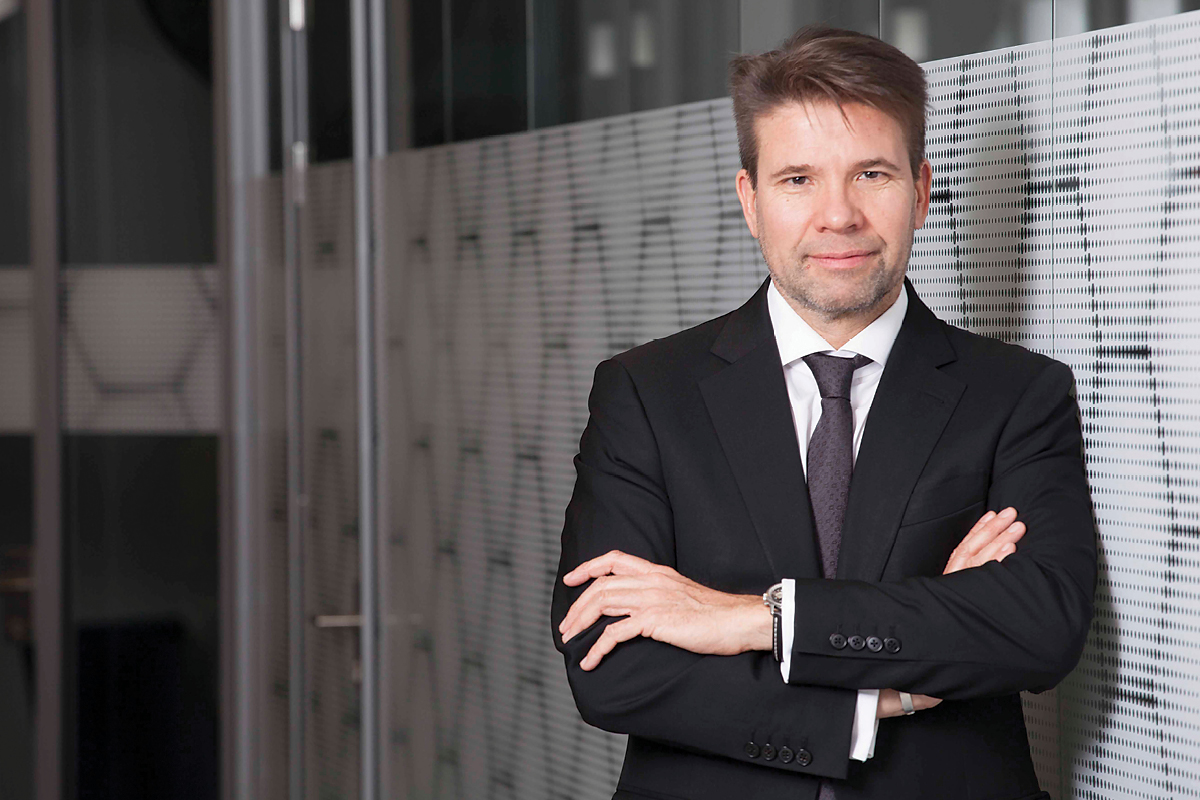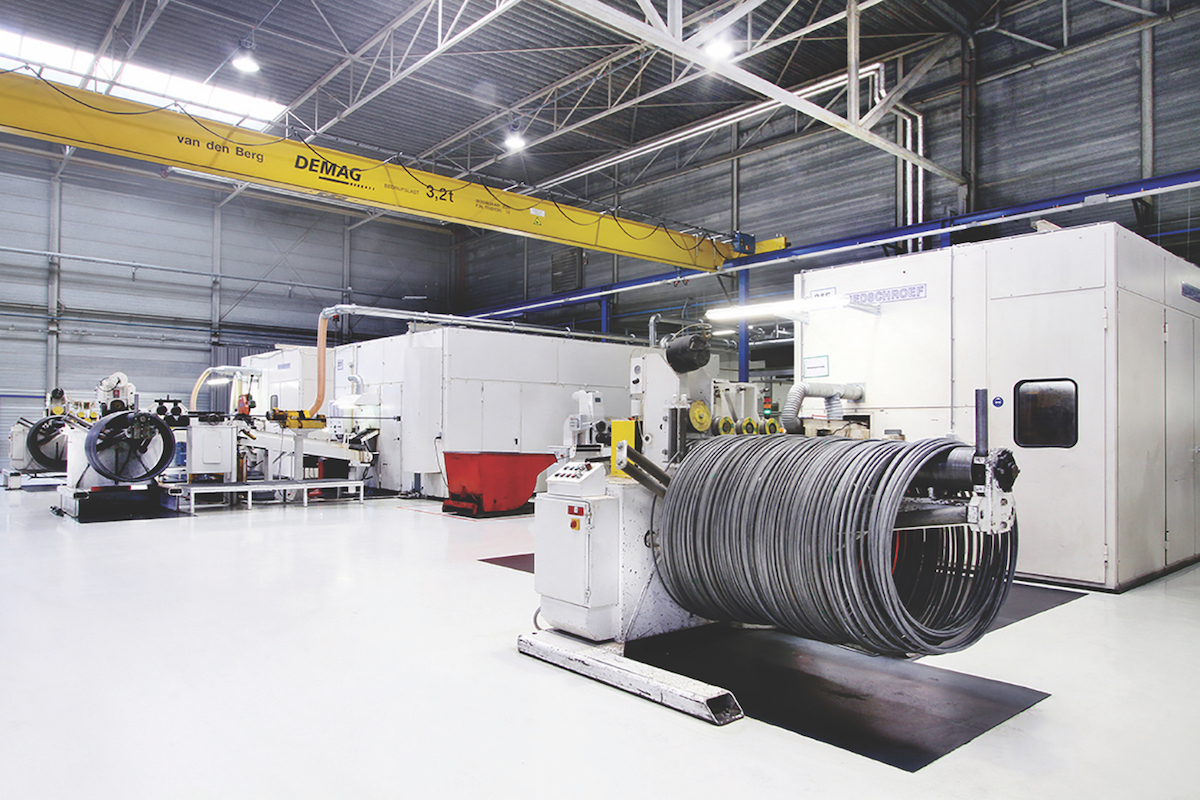This year marks the 125th anniversary of Koninklijke Nedschroef Holding (KNH). Headquartered in Helmond, the Netherlands, it has developed, manufactured and supplied fasteners and specialised parts for the automotive industry for decades. As the industry faces dramatic change, CEO Dr Mathias Hüttenrauch is continually thinking of ways to reinvent the company.

Recently, it has developed a new product strategy to assist with a high degree of automation. “Our footprint is mainly in Western Europe,” Mathias explains, “so we need to compete with innovation and not purely on cost.
We developed a fully hydraulic, new machine concept called the NC Family, which is capable of bringing more cold-forging and opens up a new product portfolio of either machines or using other materials like aluminium, titanium and carbon fibre.
We developed a more complex product strategy and we are the only manufacturer to build it.” KNH has also expanded its headquarters, using its three core values as the basis for design. The first is transparency. “There’s no closed cabin anymore,” Mathias says. “It’s all glass and it’s very transparent.” The second, efficiency.
“We developed a more complex product strategy and we are the only manufacturer to build it.”
“We have a volume business. So, we think more or less in hierarchies and we need agile organisation.” And the third is connectivity. “The world thinks in a community and in networks,” he continues. “The building design demonstrates how we want to connect our networks so KNH will be a better company.”
When it comes to employees, the organisation looks for people who value transparency as much as it does. Mathias says this includes a career plan. “We want to know their plans in this company and what they see as success,” he states.
“We want to make sure that the managers of tomorrow can drive successful projects. We are using our talent on projects because we are becoming more of a project-oriented, agile organisation to cope with new trends. It’s impossible to handle these new trends in a classic, hierarchical, line-oriented approach. You need to have people who understand project management and digitalisation.”
Mathias describes the automotive industry as a “big, small-time industry”. “On one hand, it’s a big industry,” he says. “On the other, it is small because the people you supply to are often the people who operate with you. For us, this is around two dozen suppliers, who bring us 80% of our sales.

This means we must build long-lasting relationships. We must prove our reliability and sustainability.”The company must prove itself to more than just its suppliers. In the aftermath of the 2014 diesel emissions scandal, the automotive industry is undergoing a big compliance check.
New emissions tests pose a challenge for KNH as customers are changing corporate procedures. Mathias says the problem prompted the company to put a strong focus on making sure it is compliant, in all aspects.
“It is tough business in certain countries if you want to maintain sustainability,” he admits. “We also ask the suppliers to follow certain ethical procedures we follow here in Europe. For example, we wouldn’t buy from companies where we see unfair labour conditions.”
The industry, particularly in Europe, faces further obstacles, including Brexit and what Mathias believes is the biggest disrupter: autonomous driving. He says agile leadership is the biggest weapon to drive this change. “It brings in a huge disruption because business models will need to adjust,” he explains.
“The provider of hardware alone will disappear. To cope with these challenges is to keep a flexible business model. It is best to filter out the trends to decide what you want to do. A flexible, transparent organism helps to move and react to these trend changes quickly. There are so many options, but you want to choose those that will make your company a better place.”


